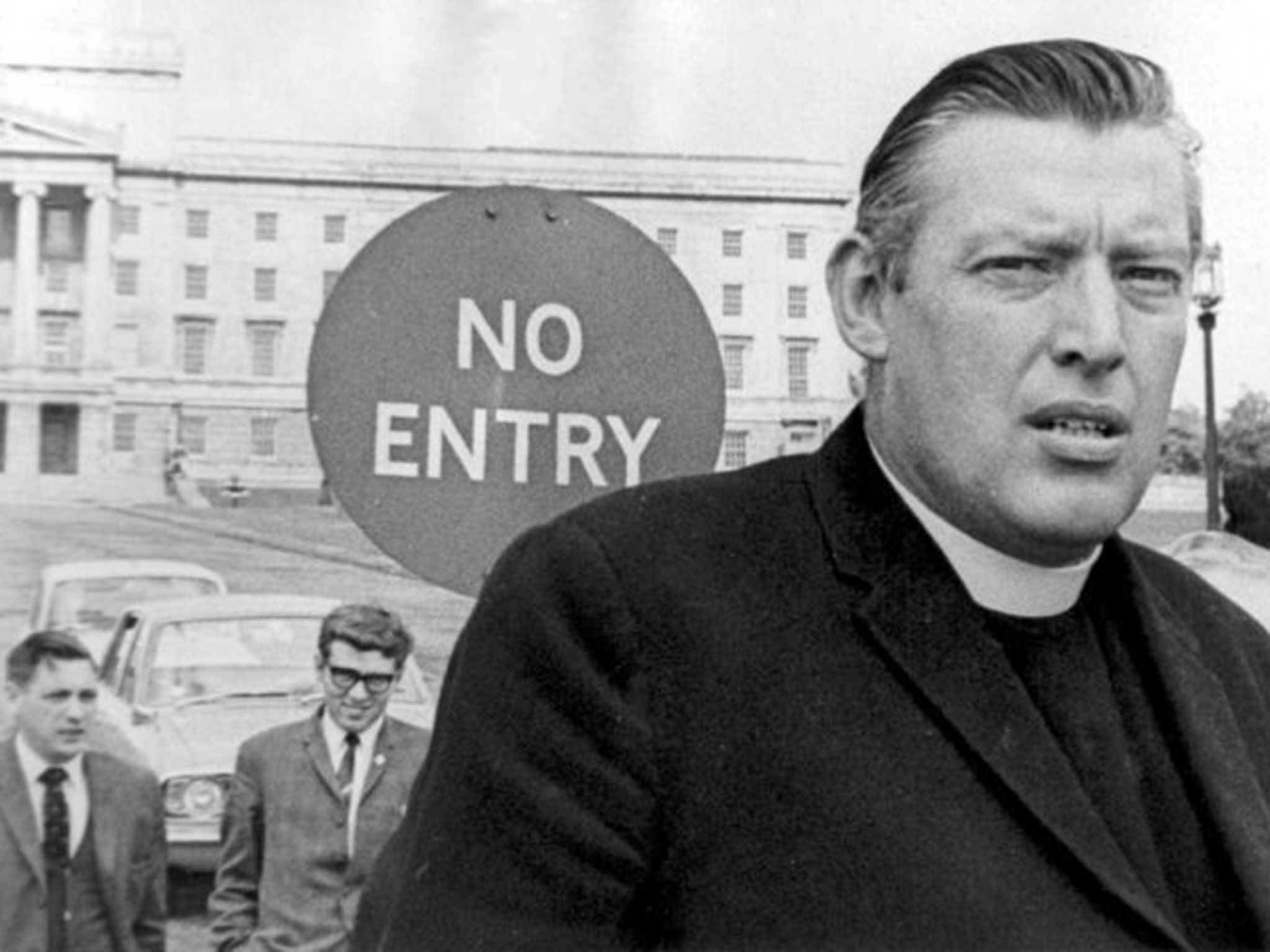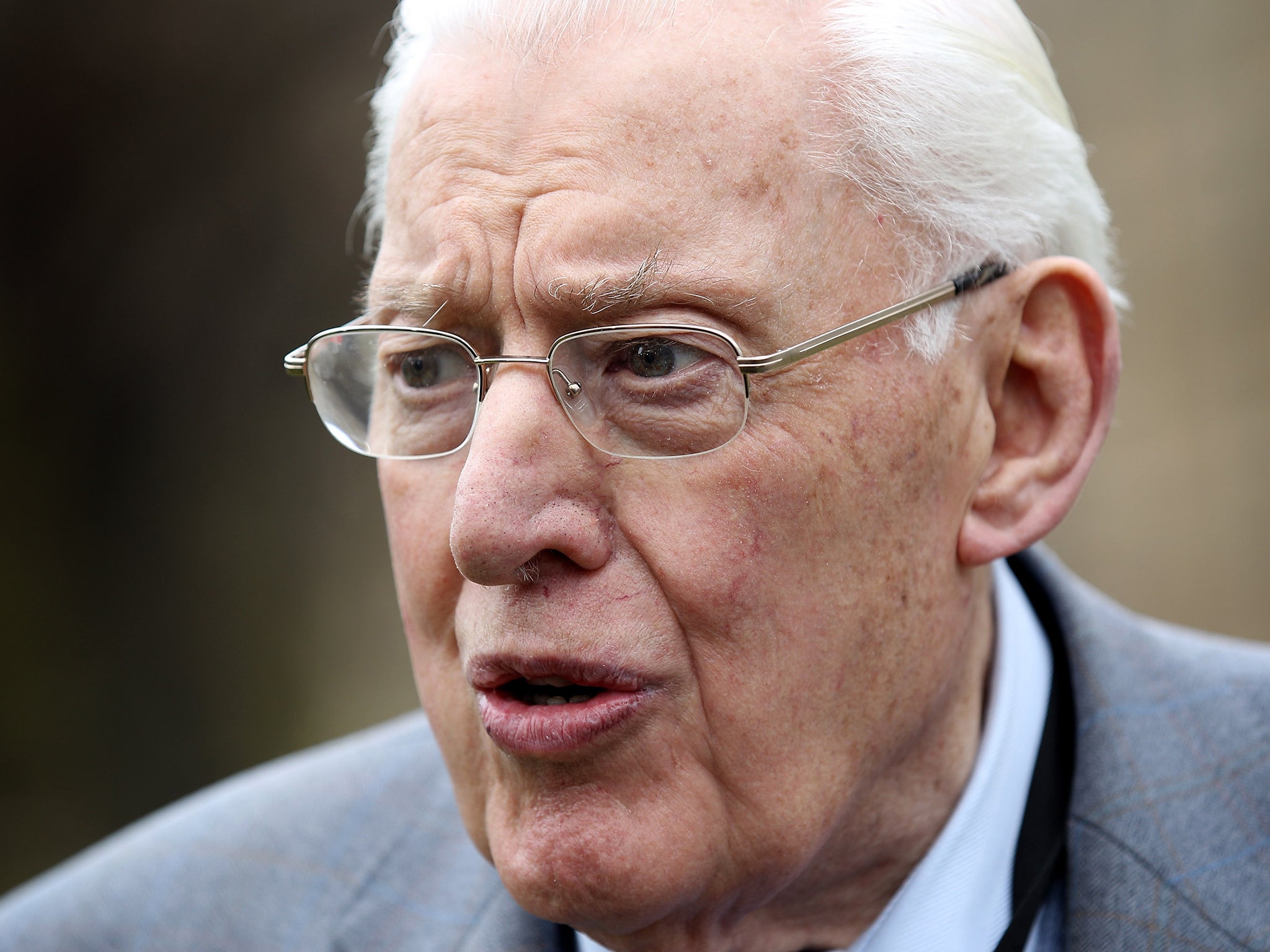Ian Paisley: Humanity got the better of the bigot
Forgiveness and redemption became more than theological concepts


Your support helps us to tell the story
From reproductive rights to climate change to Big Tech, The Independent is on the ground when the story is developing. Whether it's investigating the financials of Elon Musk's pro-Trump PAC or producing our latest documentary, 'The A Word', which shines a light on the American women fighting for reproductive rights, we know how important it is to parse out the facts from the messaging.
At such a critical moment in US history, we need reporters on the ground. Your donation allows us to keep sending journalists to speak to both sides of the story.
The Independent is trusted by Americans across the entire political spectrum. And unlike many other quality news outlets, we choose not to lock Americans out of our reporting and analysis with paywalls. We believe quality journalism should be available to everyone, paid for by those who can afford it.
Your support makes all the difference.When I arrived in Belfast as a young reporter at the height of the Troubles, I was taken on a tour of the city’s hotspots by a kindly veteran. At the end, I asked why we had not visited the Ravenhill Road church of Ian Paisley, the booming brimstone bigot who bestrode Ulster Protestantism like a curmudgeonly colossus. I was advised not to venture there, with a warning that the congregation had once roughed up a reporter for taking notes during the sermon.
Not long after, a braver – or less well-advised – journalist made the trip to the Martyrs’ Memorial Church where Paisley preached on Sundays. The Big Man spotted him from the pulpit and launched a venomous digression on the evils of the British national press. My colleague silently squirmed.
“And you should know,” Paisley thundered to his devoted listeners, “that today, in this very place, there is present one of these denizens of that same Fleet Street den of iniquity. It is that man there,” boomed the preacher, pointing a massive finger at the hapless hack. Everyone glared at him. “And I have just one thing to say to you, sir, as you sit here, uninvited and unannounced. And it is this….” He paused, as the lynch-mob looks intensified. “It is that you are … most welcome here.”
It was quintessential Paisley – firebrand orator, rebarbative politician, demagogue manipulator, crafty showman, caustic humorist, master of the unexpected. There was even about it a flicker of calculated charm. Such qualities were why Ian Paisley was such a towering figure on Northern Ireland’s landscape. His shadow fell across all the British Isles for almost six decades.
There was always a feeling of paradox about Paisley. Certainly, he was a man in whom the prejudices of a darker age found refuge. His animus against the Catholic church was vehement and visceral – the Roman church, he called it when being polite, or the Queen of Harlots when he was in full Reformation Protestant rhetorical flow. And yet he was usually perfectly pleasant to individual Catholics.
I once asked him if it was true that he had privately welcomed a group of young Catholics into his office at the European Parliament who were having difficulties with the Strasbourg authorities. “Is that the Devil’s buttermilk on your breath, Mr Vallely?” he asked in response, knowing the press pack had just come from the pub, where I had had a half of Guinness. The Strasbourg story was true, but he didn’t want that kind of thing getting about among his Unionist constituents back home.

There was no harder politician in Ulster Unionism than Ian Paisley. A riot occurred in the 1950s after the rally at which his fiery, bellicose rant was first heard. The next decade, in which he was jailed for riotous assembly, he railed against Catholics whose homes had been attacked, saying they “breed like rabbits and multiply like vermin”. In the Seventies, he launched a Save Ulster from Sodomy campaign when homosexuality was being legalised. And he was ejected from the European Parliament as Pope John Paul II delivered a speech, for shouting: “I denounce you as the Antichrist.”
When he was invited to Downing Street, to talk to John Major about how to respond to an IRA ceasefire, he delivered such a diatribe that Major asked him to leave. When Paisley refused, the PM walked out. Paisley continued his tirade to the empty room.
So what changed him? A succession of Unionist politicians who moved towards compromise were called traitor or Judas by Paisley, known as Dr No after he received an honorary doctorate from a dodgy US Bible Belt university. The Queen was Tony Blair’s “parrot”. Margaret Thatcher was branded “Jezebel” for her power-sharing plans.
But when the moment came, Paisley suddenly agreed to share power in a Northern Ireland Assembly with his Sinn Fein enemies. He became the first First Minister, with the dread ex-IRA man Martin McGuinness as his deputy. Perhaps personal power was the motivation. Paisley was always a maverick – he founded his own religious denomination, his own political party and even his own newspaper. But I think it was something else.
Public office exposed him to a wide range of ordinary constituents outside the Presbyterian Unionist ghetto. His Catholic constituents said he dealt with them even-handedly as an MP. When Catholics got jobs in traditionally Protestant workplaces and Unionists there refused to work with them, Paisley went in to sort out his co-religionists.
The passing of the years mellowed him; he and his deputy, McGuinness – whose paramilitary group he called “the spawn of Satan” – would laugh and joke to such an extent they were dubbed the Chuckle Brothers. When McGuinness’s mother was dying the two men prayed together.
In the end, I suspect, his religion was the determinant. Forgiveness and redemption became more than theological concepts. They turned a blustering bigot into a symbol of hope.
Join our commenting forum
Join thought-provoking conversations, follow other Independent readers and see their replies
Comments